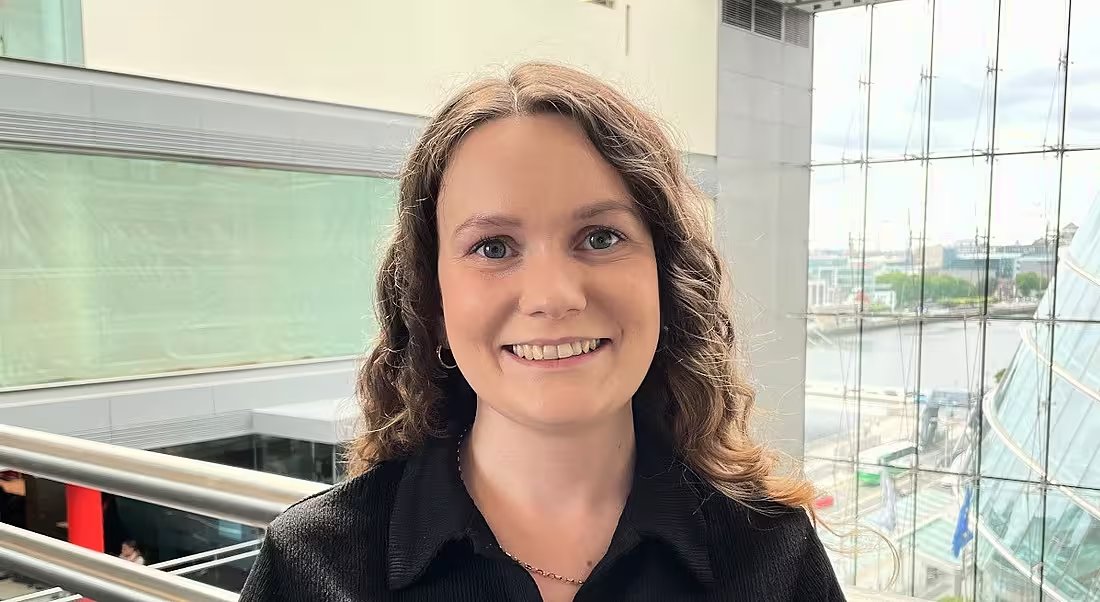PwC’s Clare White talks about her transition from college to working life and the skills she has learned on the data and analytics team.
With a bachelor’s degree in maths and a master’s degree in data and computational science, Clare White now works in PwC as a consultant in the data and analytics team.
She told SiliconRepublic.com that one of the main reasons she wanted that type of job was because it gives her the opportunity to work with a variety of industries and clients.
White was drawn to PwC’s graduate programme because she had already done an internship there after her third year of her undergraduate degree.
“I had gotten a good insight into the type of work done by the data and analytics team and consulting in general,” she said. “I also really liked the culture in the firm – everyone was so welcoming, and people were happy to help when needed.”
‘Everyone has been eager to help me out and give advice when I needed it’
– CLARE WHITE
What were your expectations of the programme before starting?
Since I had done the internship, I felt I had a good idea of what to expect when I started as a graduate. I was slightly nervous around what types of projects I might be working on and what skills I would be using.
I thought that the programme would be a good introduction into the professional world after college, which it definitely has been. I’ve had exposure to many new technologies and been able to develop both my hard and soft skills.
What duties and responsibilities did you take on when you first started?
In consulting, your responsibilities tend to vary depending on the project or client you are working on.
When I first started, the project I worked on involved developing a dashboard, so I was tasked with getting up to speed with Power BI, working out how we would prepare our data and then building the dashboard itself.
The responsibilities I was given meant I learned a huge amount over a short period of time.
Has the scope of your work change as the programme progressed?
As the programme progressed and I gained more experience and business knowledge, I was given more responsibility and autonomy.
In my current project, we had a significant change to the personnel on the project team. This meant that I was given responsibility for running several monthly processes and also helped the new team members get up to speed with the project.
Can you describe a typical day in your role?
A typical day starts with checking my emails and getting up to speed ahead of the daily morning meeting with the project team.
In that meeting I catch up with my team, going through the tasks that were completed the previous day, what still needs to be done and assigning tasks for the day ahead. At the moment, my work involves a lot of monthly processes, so the work I’ll be doing will depend on where we are in the month.
Typically, I’ll be running SQL scripts and Excel macros, validating data and engaging with stakeholders to ensure the validity of the data.
At times I’ll also be involved in rewriting SQL scripts and macros. I would say it’s quite different to college, but the collaborative aspect from college work is very much a part of my day to day.
How do your responsibilities compare to more experienced employees?
Typically, more experienced employees would have more managerial responsibilities. At my level, we’re typically more involved with the day-to-day work, while the more senior colleagues would also have to take more of the responsibility for interacting directly with clients and ensuring the project is moving in the right direction.
How do you think this programme has made you more prepared for working life?
Through my first year I have gained many skills in the area of data analytics and consulting more generally. As the past year has progressed, I feel I’ve had more and more to offer the projects I’m working on.
Each of the projects I have worked on has required me to learn a new technical skill, which has pushed me to develop my capabilities and has been incredibly beneficial.
I’ve also been able to develop my business knowledge and soft skills, which I think will be key aspects to my professional development.
Why would you recommend the graduate programme at this company to others?
I would absolutely recommend the graduate programme. I think it’s a great introduction to professional life from college. You can get exposure to a variety of clients in a wide range of industries.
You’ll also get opportunities to learn and develop your skills in a supportive environment. I think that supportive environment has been one of the most impactful aspects of working with PwC over the past year.
Everyone has been eager to help me out and give advice when I needed it, which has made the transition from college to working life much easier and less daunting.
10 things you need to know direct to your inbox every weekday. Sign up for the Daily Brief, Silicon Republic’s digest of essential sci-tech news.




